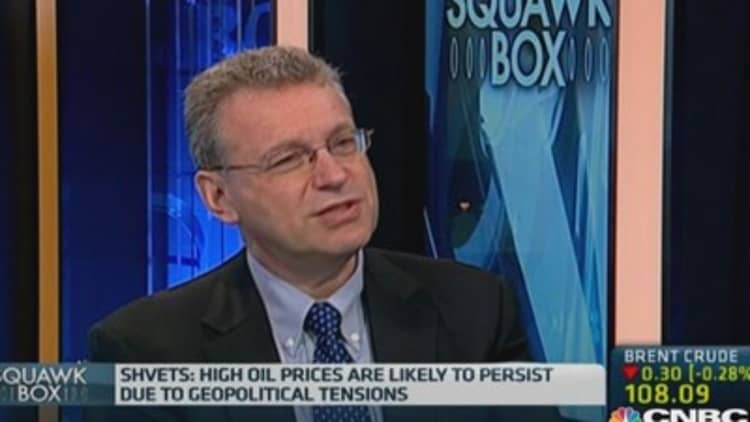
Geopolitical tensions are heating up globally, but it isn't clear whether investors need to react, with stock markets not paying the conflicts much attention so far.
"You can be forgiven for thinking that the world is a pretty terrible place right now," Michael Cembalest, global head of investment strategy at JPMorgan Asset Management said in a recent note, citing everything from Russia-Ukraine tensions, the Gaza conflict, civil wars in Syria, Afghanistan, Iraq and Somalia, insurgencies in Nigeria and Mali, and even the long-running North Korea rumblings.
"Strange as it might seem, such conflicts are not affecting the world's largest equity markets very much," he noted, adding that's "nothing new."
Read More Bigger worry than geopolitics? The Fed, of course
Currently, war zone countries have a small global footprint, representing just 0.7 percent of global equity market capitalization, 0.4 percent of portfolio investment flows and 0.8 percent of corporate profits, offset only by their 9.0 percent share of global oil production, Cembalest noted.
"Since 1950, with the exception of the Israeli-Arab war of 1973 (which led to a Saudi oil embargo against the U.S. and a quadrupling of oil prices), military confrontations did not have a lasting medium-term impact on U.S. equity markets," he said. "The business cycle has been an overwhelmingly more important factor for investors to follow than war."
Read More Commentary: Why investors should stop second-guessing geopolitics
Others agree that investors have been right to tune out geopolitical noise in the past, but aren't so sure that's the best way forward.
"Generally speaking, equity investors are not very good at discounting geopolitics, and that was absolutely the right strategy to do, to ignore it largely over the last 30-40 years," Viktor Shvets, head of strategy research for Asia at Macquarie, told CNBC.
Read More Commentary: Real traders more worried about Gaza than plane crash
"The question is going forward, over the next 5-10 years, whether that's the right strategy and in my view it isn't," he added.
Read MoreHow CFOs are protecting their businesses from geopolitical risk
He believes emerging market assets would have run up much more without the increased geopolitical tensions and investors haven't accounted for discounting the risks.
"Geopolitical risk will stay much higher, much longer," he said. "It's not just going to be Gaza, it's not just going to be Russia, it's not just going to be Thailand or India. It's going to be all across almost every single emerging market."
—By CNBC.Com's Leslie Shaffer; Follow her on Twitter @LeslieShaffer1

